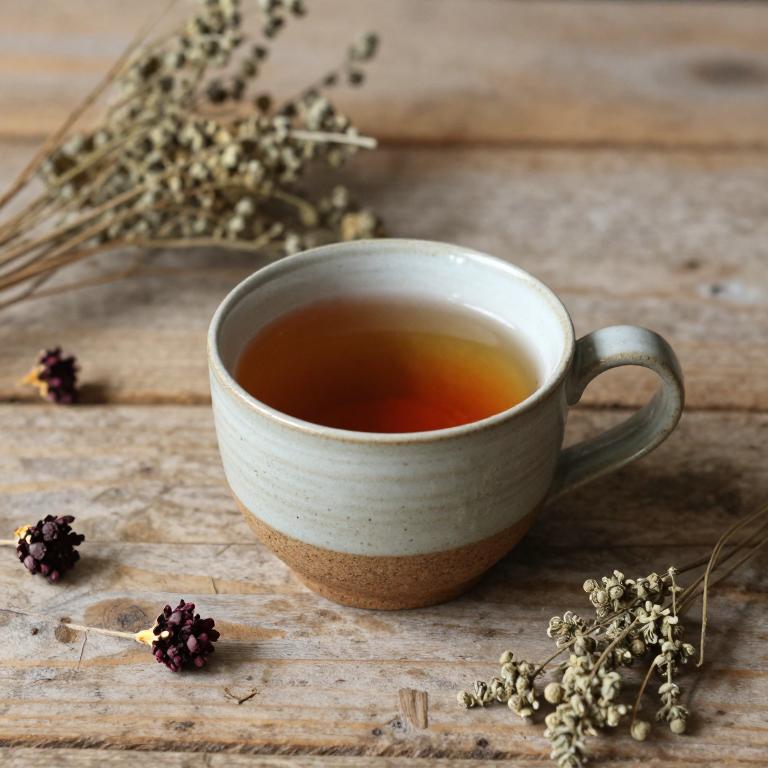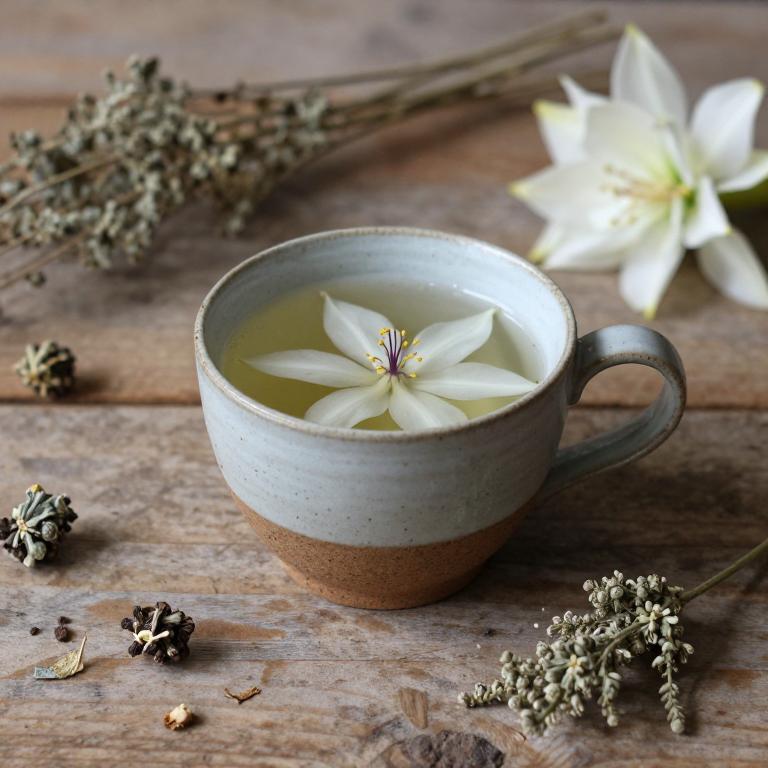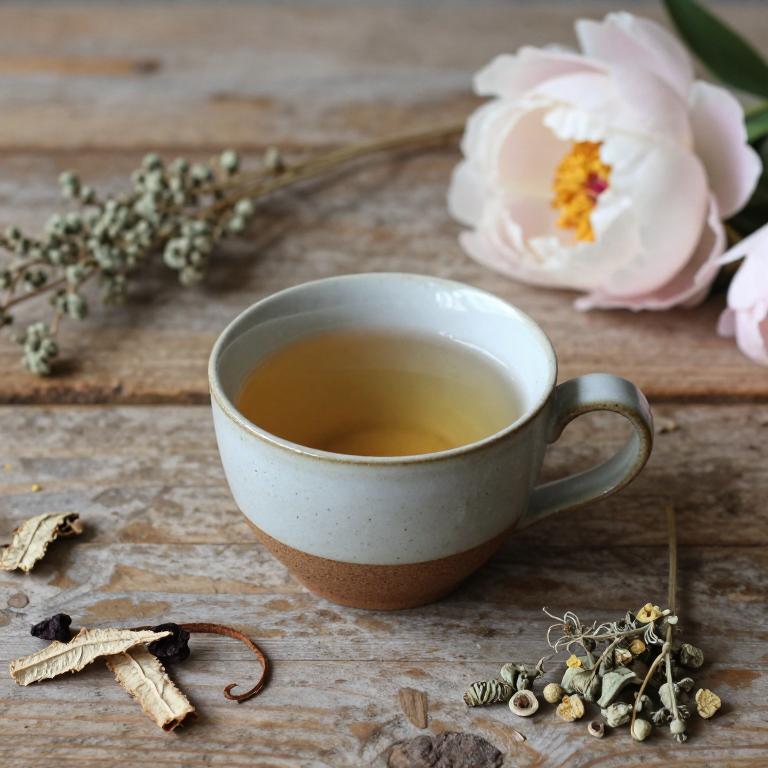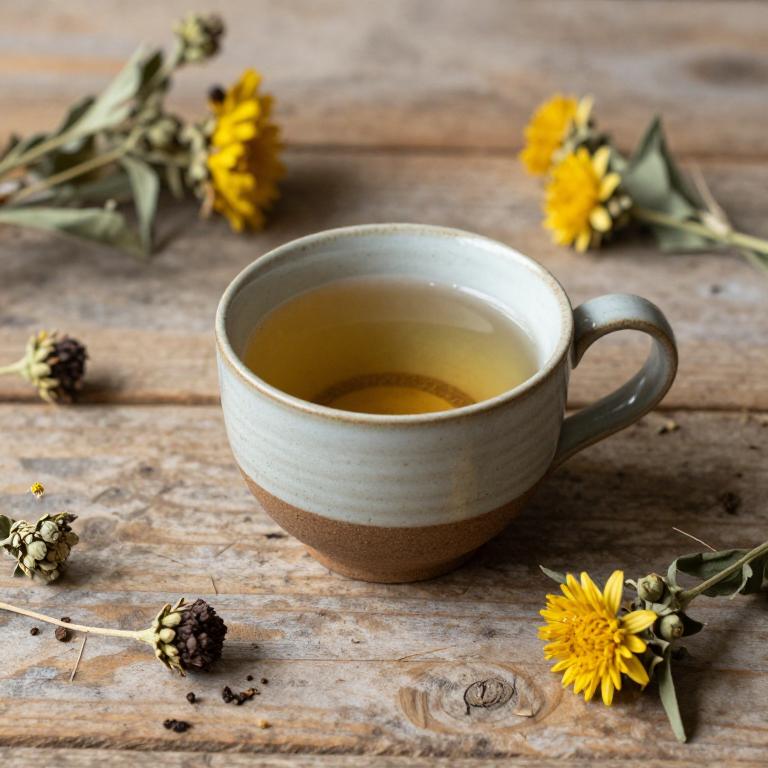10 Best Herbal Teas For Ovulation Pain

Herbal teas can be a natural and soothing remedy for women experiencing ovulation pain, often referred to as mittelschmerz.
Teas containing ingredients like ginger, chamomile, and raspberry leaf are commonly recommended for their anti-inflammatory and calming properties. These herbs may help alleviate cramping and discomfort associated with ovulation by promoting blood flow and reducing uterine spasms. Additionally, some herbal teas can support hormonal balance, which may contribute to more regular and less painful ovulatory cycles.
While herbal teas are generally safe, it is advisable to consult a healthcare provider before incorporating them into a wellness routine, especially for those with underlying health conditions or taking other medications.
Table of Contents
- 1. Chaste tree (Vitex agnus-castus)
- 2. Stinging nettle (Urtica dioica)
- 3. Black cohosh (Cimicifuga racemosa)
- 4. Thistle (Silybum marianum)
- 5. White water lily (Nymphaea alba)
- 6. Chinese peony (Paeonia lactiflora)
- 7. Fennel (Foeniculum vulgare)
- 8. Rosemary (Rosmarinus officinalis)
- 9. Turmeric (Curcuma longa)
- 10. Heartworts (Leonurus cardiaca)
1. Chaste tree (Vitex agnus-castus)

Vitex agnus-castus, commonly known as chaste tree berry, is a herbal remedy often used to support hormonal balance and menstrual health.
Herbal teas made from vitex are believed to influence the pituitary gland, which can help regulate ovulation and reduce associated discomfort. Some women use vitex tea to alleviate ovulation pain, also known as mittelschmerz, by promoting smoother hormonal transitions. However, it is important to consult with a healthcare provider before using vitex, especially for those with hormone-sensitive conditions or who are pregnant.
While some studies suggest potential benefits, more research is needed to fully understand its effectiveness and safety for ovulation pain.
2. Stinging nettle (Urtica dioica)

Urtica dioica, commonly known as stinging nettle, is a herb that has been traditionally used for its potential health benefits, including its use in herbal teas for managing ovulation pain.
The plant contains various nutrients and compounds that may help reduce inflammation and support hormonal balance, which can be beneficial during the menstrual cycle. When brewed into a tea, stinging nettle is believed to ease discomfort associated with ovulation by soothing the uterine lining and reducing cramping. However, it is important to consult with a healthcare provider before using it, especially for those with existing medical conditions or who are pregnant.
While some women find relief from ovulation pain with stinging nettle tea, individual responses may vary, and it should be used as part of a holistic approach to menstrual health.
3. Black cohosh (Cimicifuga racemosa)

Cimicifuga racemosa, commonly known as black cohosh, is a herbal remedy often used in herbal teas to support women's health, particularly during the menstrual cycle.
Some individuals use cimicifuga racemosa herbal teas to alleviate symptoms associated with ovulation pain, such as cramping and discomfort. While there is limited scientific evidence on its effectiveness for ovulation pain, traditional use suggests it may help regulate hormonal fluctuations. It is important to consult a healthcare provider before using this herb, especially for pregnant women or those with hormone-sensitive conditions.
As with any herbal supplement, dosage and preparation methods should be carefully followed to ensure safety and efficacy.
4. Thistle (Silybum marianum)

Silybum marianum, also known as milk thistle, is a herbal remedy commonly used in herbal teas for its potential health benefits.
While it is widely recognized for its liver-protecting properties, some individuals use silybum marianum herbal teas to alleviate ovulation pain due to its anti-inflammatory and antioxidant properties. These teas may help reduce the discomfort associated with mittlesches syndrome, a condition that causes pain during ovulation. However, it is important to consult with a healthcare provider before using silybum marianum, as it may interact with certain medications or have side effects in some individuals.
Overall, while silybum marianum herbal teas may offer some relief, they should not replace professional medical advice or treatment for ovulation pain.
5. White water lily (Nymphaea alba)

Nymphaea alba, commonly known as white water lily, has been traditionally used in herbal medicine for its calming and anti-inflammatory properties.
When brewed into a herbal tea, it may help alleviate symptoms associated with ovulation pain, such as cramping and discomfort, due to its potential soothing effects on the uterine muscles. The tea is believed to support hormonal balance, which can contribute to reducing the intensity of menstrual-related pain. It is often consumed as a gentle, natural remedy to promote overall reproductive health and ease the discomfort of ovulation.
However, it is advisable to consult a healthcare professional before using nymphaea alba, especially during pregnancy or if taking other medications.
6. Chinese peony (Paeonia lactiflora)

Paeonia lactiflora, commonly known as the peony, has been traditionally used in herbal medicine for its potential therapeutic properties.
When used in the form of herbal tea, it may help alleviate ovulation pain, also known as mittelschmerz, due to its anti-inflammatory and analgesic effects. The active compounds in Paeonia lactiflora, such as paeoniflorin, are believed to support hormonal balance and reduce uterine contractions. However, it is important to consult with a healthcare provider before using this herb, especially for those with existing medical conditions or who are pregnant.
While some studies suggest its efficacy, more research is needed to fully understand its role in managing ovulation-related discomfort.
7. Fennel (Foeniculum vulgare)

Foeniculum vulgare, commonly known as fennel, is a herb often used in herbal teas to support reproductive health and alleviate symptoms associated with ovulation pain.
The essential oils in fennel, particularly anethole, have mild antispasmodic and analgesic properties that may help reduce cramping and discomfort during the menstrual cycle. When brewed into a tea, fennel can soothe the digestive system and ease the tension in the uterine muscles, which may contribute to ovulation pain. However, it is important to consult a healthcare provider before using fennel tea, especially during pregnancy or if taking other medications.
While fennel tea may offer some relief, it should not replace professional medical advice or treatment for persistent or severe ovulation pain.
8. Rosemary (Rosmarinus officinalis)

Rosmarinus officinalis, commonly known as rosemary, is a fragrant herb often used in herbal teas to support women's reproductive health.
Rosemary tea is believed to help alleviate ovulation pain, also known as mittleschmerz, by promoting uterine relaxation and reducing cramping. The essential oils in rosemary, such as cineole and camphor, may have anti-inflammatory and analgesic properties that ease discomfort. Drinking rosemary tea regularly can also improve circulation and hormonal balance, which may support overall menstrual health.
However, it is advisable to consult a healthcare provider before using rosemary tea, especially during pregnancy or if taking other medications.
9. Turmeric (Curcuma longa)

Curcuma longa, commonly known as turmeric, has been traditionally used in herbal teas to support women's reproductive health, including alleviating ovulation pain.
The active compound in turmeric, curcumin, possesses anti-inflammatory and antioxidant properties that may help reduce the discomfort associated with ovulation. When consumed as a herbal tea, curcuma longa can be a natural and soothing remedy for mild menstrual-related pain. However, it is important to consult with a healthcare provider before using turmeric supplements, especially for those with existing health conditions or who are pregnant.
While curcuma longa may offer some relief, it should not replace medical advice or treatment for severe or persistent ovulation pain.
10. Heartworts (Leonurus cardiaca)

Leonurus cardiaca, commonly known as heart herb or blueweed, has been traditionally used in herbal medicine for its potential benefits in supporting reproductive health.
Herbal teas made from Leonurus cardiaca are often recommended for women experiencing ovulation pain due to their anti-inflammatory and analgesic properties. The plant contains compounds such as flavonoids and tannins, which may help reduce uterine cramping and discomfort associated with ovulation. Some studies suggest that Leonurus cardiaca may also support hormonal balance, making it a valuable natural remedy for menstrual cycle regulation.
However, it is important to consult with a healthcare provider before using this herb, especially for those with existing medical conditions or taking other medications.